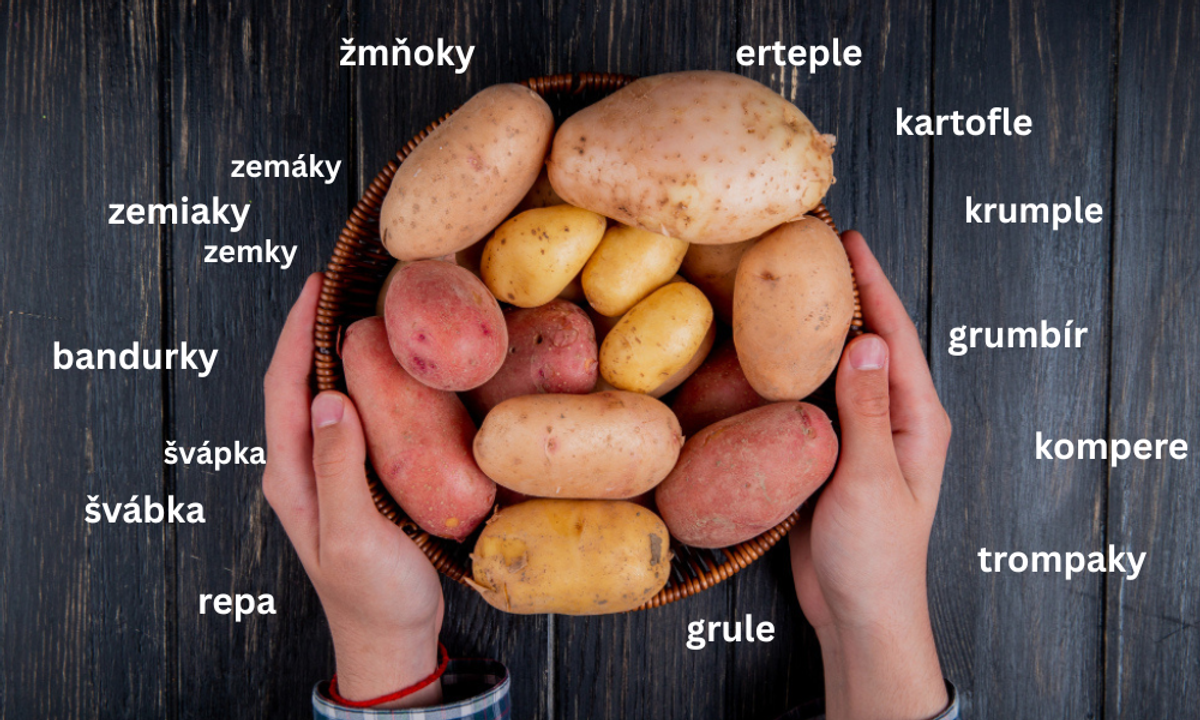I thought I knew Slovak, but the more I learn, the more words there seem to be. This month the diversity of dialects is blowing my mind. With the help of many a Slovak and some dedicated readers, I have put together a few words from different dialects (nárečia) to help you and me cover Slovakia's linguistic terrain.
The fruit of Slovak soil, the potato, forms the foundation of this guide. Called zemiaky (plural) in proper Slovak, the results show some initial inter-regional synonyms for potatoes, such as zemky and zemáky, and the borrowed German terms kartofle and erteple. But this is just the beginning. There are many words specific to different regions, and not just for the humble apple of the earth.
Starting in the west, in Ivanka pri Dunaji, just several minutes east of Bratislava, the word krumple is in use. North of the capital in the Záhorie district they use grumbír to make their halušky.
This may prepare you to visit Skalica, in Záhorie, and buy a big dusty sack of grumbír, but what else do you need to know? If you go looking for a krčma (bar) where the nearby Czech influences many of the words, you will find it under the name hospoda. And if you decide to rozprávať (converse) with someone in that hospoda, you would have to ríkat.


 The fruit of Slovak soil, the potato, forms the foundation of this guide. (source: Freepik)
The fruit of Slovak soil, the potato, forms the foundation of this guide. (source: Freepik)